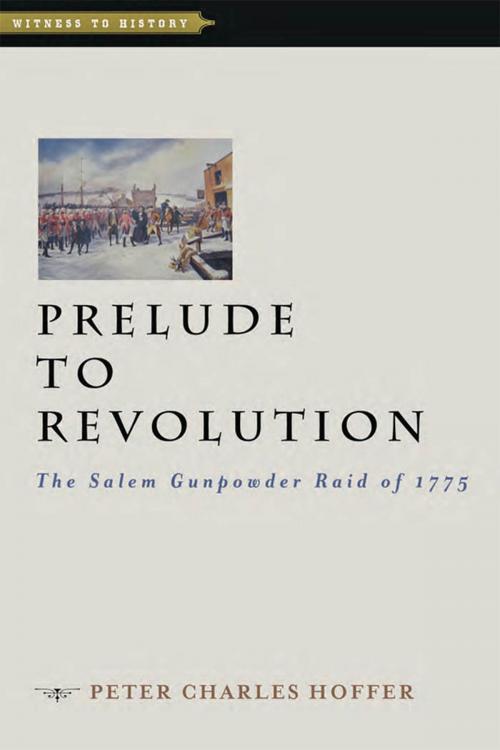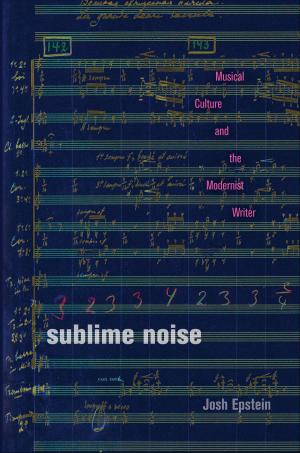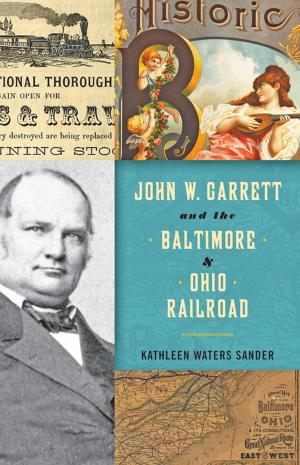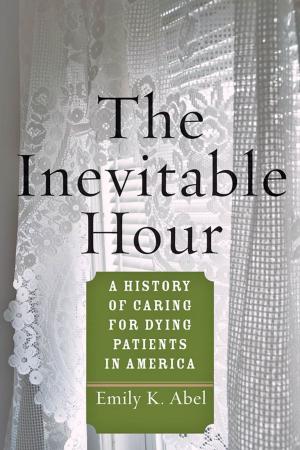Prelude to Revolution
The Salem Gunpowder Raid of 1775
Nonfiction, History, Americas, United States, Revolutionary Period (1775-1800)| Author: | Peter Charles Hoffer | ISBN: | 9781421410074 |
| Publisher: | Johns Hopkins University Press | Publication: | November 14, 2013 |
| Imprint: | Language: | English |
| Author: | Peter Charles Hoffer |
| ISBN: | 9781421410074 |
| Publisher: | Johns Hopkins University Press |
| Publication: | November 14, 2013 |
| Imprint: | |
| Language: | English |
Before colonial Americans could declare independence, they had to undergo a change of heart. Beyond a desire to rebel against British mercantile and fiscal policies, they had to believe that they could stand up to the fully armed British soldier. Prelude to Revolution uncovers one story of how the Americans found that confidence.
On April 19, 1775, British raids on Lexington Green and Concord Bridge made history, but it was an episode nearly two months earlier in Salem, Massachusetts, that set the stage for the hostilities. Peter Charles Hoffer has discovered records and newspaper accounts of a British gunpowder raid on Salem. Seeking powder and cannon hidden in the town, a regiment of British Regulars were foiled by quick-witted patriots who carried off the ordnance and then openly taunted the Regulars. The prudence of British commanding officer Alexander Leslie and the persistence of the patriot leaders turned a standoff into a bloodless triumph for the colonists. What might have been a violent confrontation turned into a local victory, and the patriots gloated as news spread of "Leslie’s Retreat."
When British troops marched on Lexington and Concord on that pivotal day in April, Hoffer explains, each side had drawn diametrically opposed lessons from the Salem raid. It emboldened the rebels to stand fast and infuriated the British, who vowed never again to back down. After relating these battles in vivid detail, Hoffer provides a teachable problem in historic memory by asking why we celebrate Lexington and Concord but not Salem and why New Englanders recalled the events at Salem but then forgot their significance.
Praise for the work of Peter Charles Hoffer
"This book more than succeeds in achieving its goal of helping students understand and appreciate the cultural and intellectual environment of the Anglophone world."—New England Quarterly, reviewing When Benjamin Franklin Met the Reverend Whitefield
"A synthetic essay of considerable grace and scope... An excellent overview of the field."—Journal of Legal History, reviewing Law and People in Colonial America
Before colonial Americans could declare independence, they had to undergo a change of heart. Beyond a desire to rebel against British mercantile and fiscal policies, they had to believe that they could stand up to the fully armed British soldier. Prelude to Revolution uncovers one story of how the Americans found that confidence.
On April 19, 1775, British raids on Lexington Green and Concord Bridge made history, but it was an episode nearly two months earlier in Salem, Massachusetts, that set the stage for the hostilities. Peter Charles Hoffer has discovered records and newspaper accounts of a British gunpowder raid on Salem. Seeking powder and cannon hidden in the town, a regiment of British Regulars were foiled by quick-witted patriots who carried off the ordnance and then openly taunted the Regulars. The prudence of British commanding officer Alexander Leslie and the persistence of the patriot leaders turned a standoff into a bloodless triumph for the colonists. What might have been a violent confrontation turned into a local victory, and the patriots gloated as news spread of "Leslie’s Retreat."
When British troops marched on Lexington and Concord on that pivotal day in April, Hoffer explains, each side had drawn diametrically opposed lessons from the Salem raid. It emboldened the rebels to stand fast and infuriated the British, who vowed never again to back down. After relating these battles in vivid detail, Hoffer provides a teachable problem in historic memory by asking why we celebrate Lexington and Concord but not Salem and why New Englanders recalled the events at Salem but then forgot their significance.
Praise for the work of Peter Charles Hoffer
"This book more than succeeds in achieving its goal of helping students understand and appreciate the cultural and intellectual environment of the Anglophone world."—New England Quarterly, reviewing When Benjamin Franklin Met the Reverend Whitefield
"A synthetic essay of considerable grace and scope... An excellent overview of the field."—Journal of Legal History, reviewing Law and People in Colonial America















